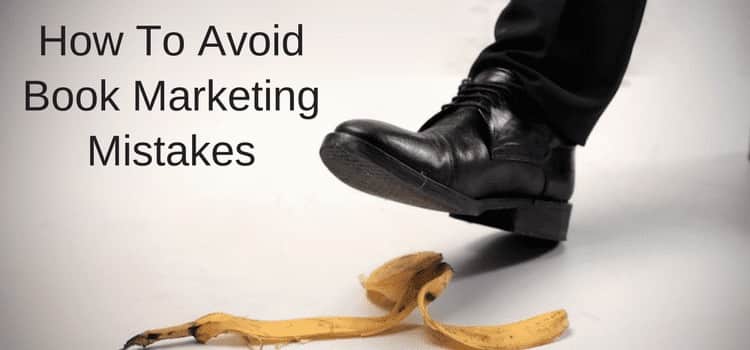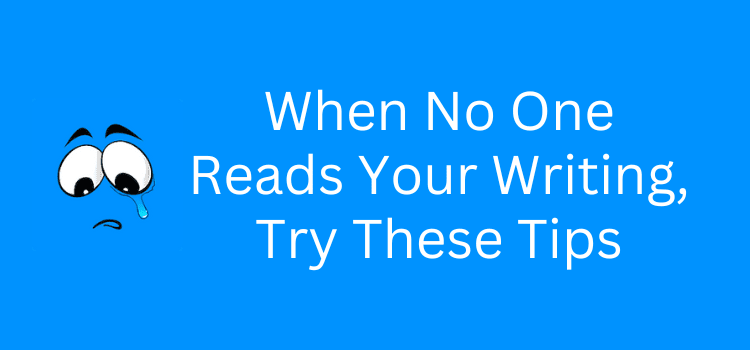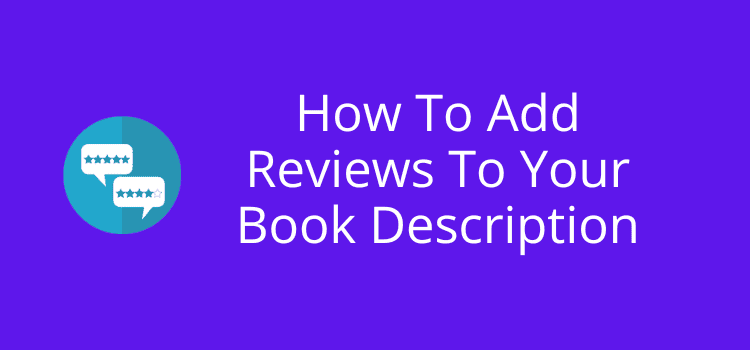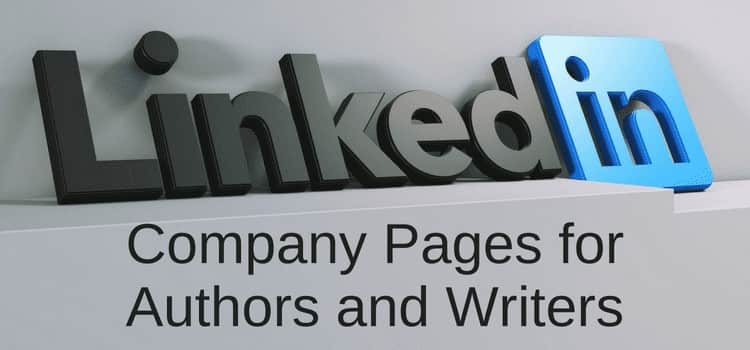
You’ve published your book at last, which is a great achievement. You want it to sell, but to be successful, try to avoid making some simple book marketing mistakes.
It’s easy to believe that everyone will love and buy your book. But in reality, that won’t happen.
You have to put a lot of time and effort into promoting, marketing, and selling your book, and it’s hard work.
The biggest trap is trying too hard to sell your book directly to people. A more effective way is to encourage readers to discover and investigate your book.
Tips for marketing a new book
Your book is available on Amazon, Kindle, Apple, Kobo, and other online book retailers.
Now, you are ready to start marketing a new book to potential readers.
Naturally, the next thing you do is open a Twitter account and start a Facebook page for social media marketing.
Perhaps you will even design a new website.
You might also get back to using your blog and writing a blog post, which you forgot to do while writing your book and getting it published.
With all that work done, the New York Times will be on the phone in no time, and the book sales will start rolling in.
So wrong because it’s not how digital marketing works.
Here are ten book marketing mistakes to avoid making when you are trying to promote your new book.
Selling books is hard work and even more challenging if you don’t have a sensible plan.
Try to visualize your potential readers and think about how they will react to your marketing efforts.
1. Selling books
Thinking that you need to sell your book on Amazon is probably one of the most common book marketing mistakes new authors make.
Cars need salespeople to sell them, and real estate needs agents to sell houses.
You can’t sell books like this.
Readers buy books with no one pushing a pen and a contract across a desk and pressuring them to sign.
Therefore, you need to develop a marketing strategy, not a selling technique.
You will probably need to focus on content marketing and personal branding to attract book buyers.
2. Social media
If you think that social media sites such as Twitter and Facebook can help you sell lots of books, you’ll be disappointed.
Social media is beneficial for an author in creating awareness and building an interested following.
You need to be seen as an interesting or informative person to gain followers and friends.
People want interaction, information, or light entertainment on social media.
Not hourly posts of your book cover and Amazon links with pleas to read my book.
Promotional social media posts, including Facebook Ads, generally have an extremely low conversion rate.
Use social media to create interest, not for hard selling your book.
3. No plan
Releasing a book with no book launch or marketing plan is a common problem.
Readers can only buy books that they have heard about.
You don’t need to be a marketing expert.
But you need to think about how you will make your book visible over weeks and months.
Your marketing campaigns will be how you plan to make your book known to potentially interested readers.
4. Everyone will love my book
The world is a vast book market, but your book will not appeal to everyone.
In reality, your book, like all books, will only be of potential interest to a very tiny part of the market.
Readers interested in business books about blue ocean strategy will certainly not be great prospects for a YA paranormal romance novel.
You must know your niche market. If you don’t know what it is, you need to identify it and define your target audience.
You might think that having the title of an author will impress people.
It doesn’t, especially nowadays when everyone can be or is an author.
Basing your online presence on being an author will not sell books.
‘Author of the Up The Spout’ is now so common, and it is an instant turn-off.
Being someone interesting, though, can and does attract book buyers who might keep you top of mind and add your book to their reading list.
6. Poor metadata
You need to understand the importance of metadata.
In some respects, book marketing can be as simple as getting your books in the right place.
Books at the front of a bookstore always sell better than those at the back of the store.
But today, this means at the front of an online store.
To get attention, you need to publish your book with precise metadata.
This includes categories, keywords, a short book description, ISBN, and the title.
Optimizing your ebook metadata, and not persuasion, is how book buyers can find your book – and then buy it.
7. Imperative words and phrases
Using imperatives online is always a bad idea.
These include check out my book, buy my book, check out my blog, get my book for free, free for two days only, or only five-star reviews for my book.
These call-to-action words and imperative phrases might work for dishwashing detergent.
But they don’t work for books on social media platforms.
The mistake many new authors make is not thinking about how they react to these words.
Most often, the honest answer is negative.
8. It’s all for free
If you haven’t invested any money in your book, don’t expect a return on your investment.
Self-publishing is like a small business.
If you spend some money on a great cover, good editing (or at least thorough proofreading), and affordable online book promotion before, during, and after the release, it is always money well spent.
It does not need to be a huge investment, but you get what you pay for.
9. Free ebooks
Why waste time and probably a lot of money on promoting something that has no possibility of making a cent in return?
The days of giving away 1,000s of free ebooks to get book reviews and help a book’s ranking on Amazon are long gone.
On top of that, free ebooks are a great way to attract one-star troll reviewers. Why give them a chance?
Use free ebook campaigns in moderation.
10. It’s a thriller
Failing to use your book’s themes and topics as the cornerstones for attracting interest is a mistake.
Telling the world that your book is a crime thriller is of no real interest.
But if its theme is about mafia gangs in Naples in the 19th century, this may interest some readers.
To attract readers, you should use semantic keywords in your promotional content and blog posts.
Follow blogs related to the theme of your book.
Then comment, interact, and inform people of your knowledge and build an audience, but leave any mention of your book aside.
If you interest people, they will discover your book, and discovery is by far the most powerful bookselling tool in your marketing toolbox. Use it.
Free Bonus Mistake. No second book
Relying on one book will rarely bring in a lot of royalties.
Writing a second book will help, but a third is even better.
Most importantly, the lessons learned from your debut book can be invaluable in not making the same mistakes again.
Writing and self-publishing have steep learning curves.
Only those who persevere and are willing to learn succeed.
An Extra Free Bonus Mistake. I know everything
There is no shortage of sound advice available on the Internet for new and not-so-new self-published authors.
Use other people’s experiences to help you understand how to give your book its best chance of success.
Keeping up to date on the industry’s news, constant changes, and trends in online publishing all help you make better decisions.
I know how bad the consequences of self-publishing mistakes can be, and I have made absolutely all of them over the years.
But you can take a shortcut and try not to make my book marketing mistakes all over again.
Related Reading: Social Media Book Promotion Is Past Its Prime For Authors
Share This Article



Just gave you a 1/5 review by accident. I meant 5/5. This should be on every writer’s fridge (and many other visible places). Thanks!
Great advice. I do try to avoid most of them. I didn’t think saying my books was free was an issue though. I thought people might like to see something free in this current day and age.
What was the point of it? I don’t blame you being angry.
I just made mistake Number 9. I promoted my free book because my publisher encouraged me to do so. And it was so frustrating. Here I was spending all this time and energy to give my book away. Grrr.
You’re so right; writing and self-publishing sure are steep learning curves as I am discovering, having published on Kindle last year and just published my first paperback. Thanks for your pearls of wisdom. They are reassuring. Onwards and upwards with love.
Good luck with your publishing adventures, Julie Anne!
As to free books, please take into consideration that there are people who cannot afford the 0.99 for e-books. People on welfare, pensioners, the disabled. So, make your books free when you can. Bollocks to the trolls, most of them only have half a brain.
This is excellent advice. Thank you! I harp on #10 a lot, especially with novelists. I refer to this as finding the “nonfiction nuggets” in your manuscript and using them to connect with the right readers. it’s especially important with publicity and guest blogging.
Sandra Beckwith
Great advice! Thank you.
Great advice. I do try to avoid most of them. I didn’t think saying my books was free was an issue though. I thought people might like to see something free in this current day and age.
Anything free is worth what you pay for it. TANSTAAFL.